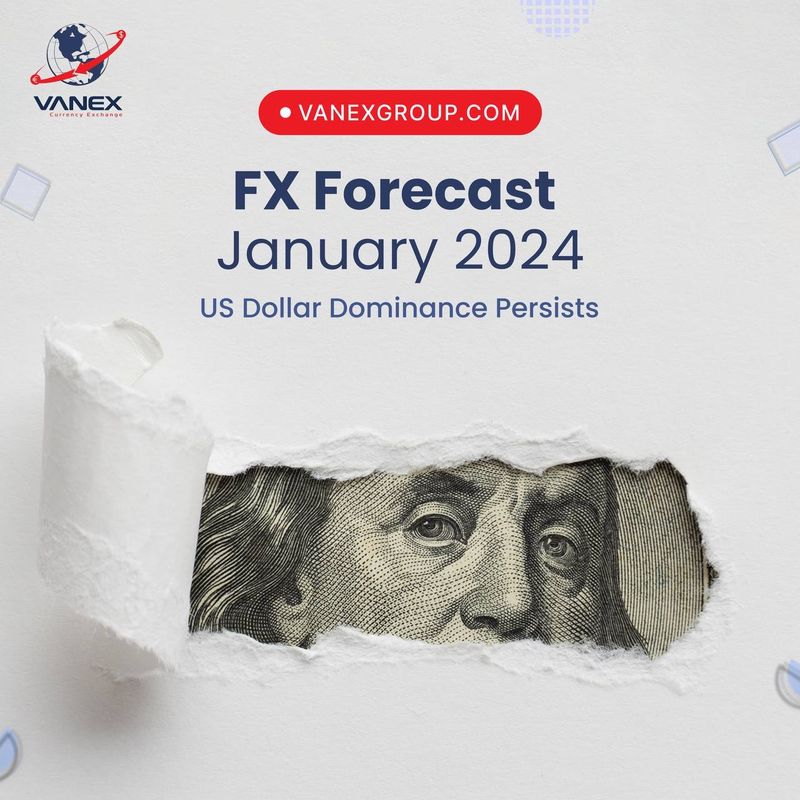April 27th 2024, 6:54:59 pm
(about a few seconds ago)
FX Forecast January 2024 – US Dollar Dominance Persists

Share On
USDCAD Q1 2024
Median: 1.35
High: 1.40
Low: 1.29
Forward: 1.34
December 2023 proved to be a favorable month for US stocks but less so for the US dollar. On December 13, the Federal Open Market Committee maintained the US interest rates at 5.5%, a widely anticipated decision, but adopted a dovish tone. The committee hinted at expecting three rate cuts in 2024, totaling 75 basis points.
In contrast, central banks globally, including those of the UK and EU, ruled out hasty rate cuts. This move pushed the US dollar lower against major currencies, particularly depreciating by 9% against the Swiss Franc and 5.2% against the British Pound.
The US bond markets embraced the euphoria, with the futures curve indicating a 1.5% rate cut for the US in 2024. However, many regarded this as overly optimistic, conflicting with the actual considerations of the US Fed.
Energy prices remain elevated, with WTI hovering around $72 per barrel. The ongoing conflicts in Israel-Palestine and Russia-Ukraine show no signs of abating, potentially involving other nations and exacerbating the situation.
The ultimate effect might be inflation not cooling down as expected or even creeping up. Currently standing at 3.1% in the US, any negative inflation report in the coming months could prompt central banks to readjust their positions, potentially causing stock markets to rebound (if possible) and the US dollar to appreciate again. Overall, there is no scenario in which the US dollar is seen to materially depreciate.
The Canadian dollar, however, does not share the same optimistic outlook as the US dollar. Canada already maintains a lower interest rate compared to the US at 5%, with a year-over-year inflation rate of 3.1%. Inflation is less likely to ease in Canada, given the housing bubble and the substantial influx of immigrants, which is putting added pressure on the country's economy.
Considering the significant household debt and the proportion of households with variable mortgages, the Bank of Canada is more likely to lower rates faster than the US. Yet, officials are cognizant that lower rates could swiftly reverse inflation cooling, potentially nullifying their efforts to control prices.
The forecast for the end of Q1 2024 for CAD is currently lower than a month ago, expected to depreciate in line with the scenario of rates coming down sooner than in the US. Energy and commodity prices may also not provide support for the Canadian dollar in 2024.




